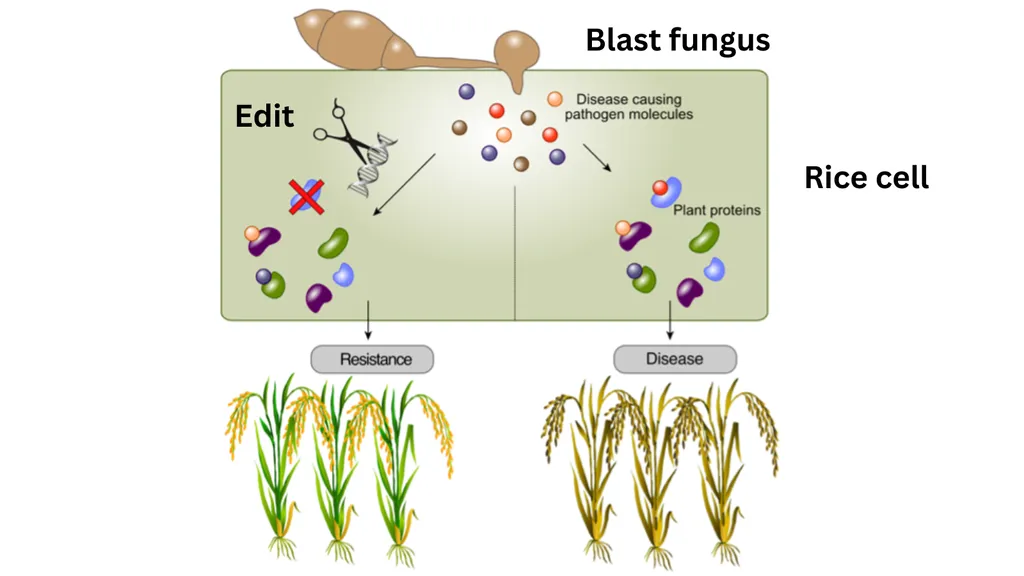In the ever-evolving world of agricultural technology, a groundbreaking study has emerged that could potentially revolutionize how we protect one of the world’s most vital crops: rice. Published in the journal Scientific Reports, the research, led by Miyuki Kusajima from the Faculty of Law at Keio University, delves into the intricate world of plant hormones and their role in disease resistance.
The study focuses on strigolactones (SLs), a type of plant hormone that has been known to influence various aspects of plant growth and development. However, recent findings have suggested that SLs might also play a crucial role in plant immunity. Kusajima and her team set out to explore this potential link, with a particular focus on systemic acquired resistance (SAR) in rice.
Systemic acquired resistance is a plant’s natural defense mechanism that is triggered by an initial infection, making the plant more resistant to subsequent attacks by a wide range of pathogens. The researchers found that a synthetic SL analog, rac-4-bromodebranon (rac-4BD), could enhance this SAR response in rice.
“Our findings suggest that rac-4BD treatment induces a priming state in the plant,” Kusajima explained. “This priming state doesn’t directly activate the plant’s immunity but makes it more responsive to SAR inducers, enhancing the overall resistance of the plant.”
The implications of this research are significant, particularly for the agricultural sector. Rice is a staple food for more than half of the world’s population, and any improvement in its disease resistance could have profound impacts on global food security. Moreover, the use of synthetic SL analogs like rac-4BD could potentially reduce the need for chemical pesticides, leading to more sustainable and environmentally friendly farming practices.
The study also sheds light on the role of the F-box protein D3 in SL and karrikin signaling. Karrikins are compounds found in smoke that promote seed germination. The researchers found that the D3 protein mediates the interaction between SL and karrikin receptors and signaling factors, playing a crucial role in the priming state induced by rac-4BD.
“This research opens up new avenues for exploring the complex world of plant hormones and their role in plant immunity,” Kusajima said. “It’s a fascinating area of study that could lead to significant advancements in agricultural technology.”
The study’s findings could also have implications for the energy sector, particularly in the production of biofuels. Rice is a potential source of biofuel, and improving its disease resistance could make it a more viable option. Moreover, the use of synthetic SL analogs could potentially enhance the growth and yield of rice, further boosting its potential as a biofuel source.
In conclusion, this research represents a significant step forward in our understanding of plant immunity and the role of SLs in this process. It opens up new possibilities for improving crop resistance and sustainability, with potential benefits for both the agricultural and energy sectors. As Kusajima and her team continue to explore this fascinating area of study, we can expect to see even more exciting developments in the future.
The research was published in Scientific Reports, a peer-reviewed journal that covers a wide range of topics in the natural and clinical sciences. The journal’s name in English is “Scientific Reports,” reflecting its commitment to reporting on the latest scientific findings and advancements.

